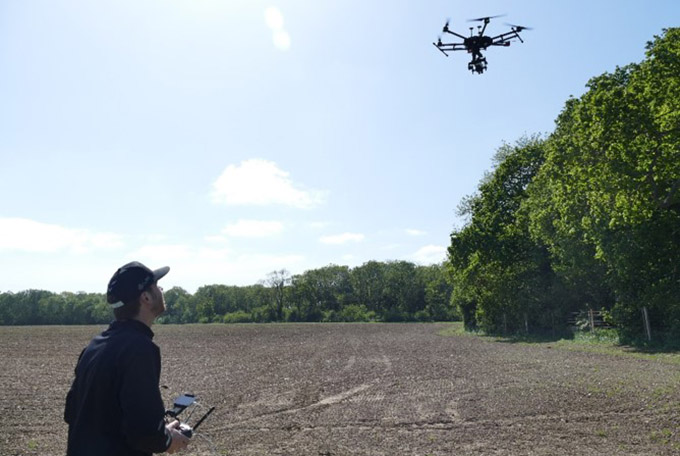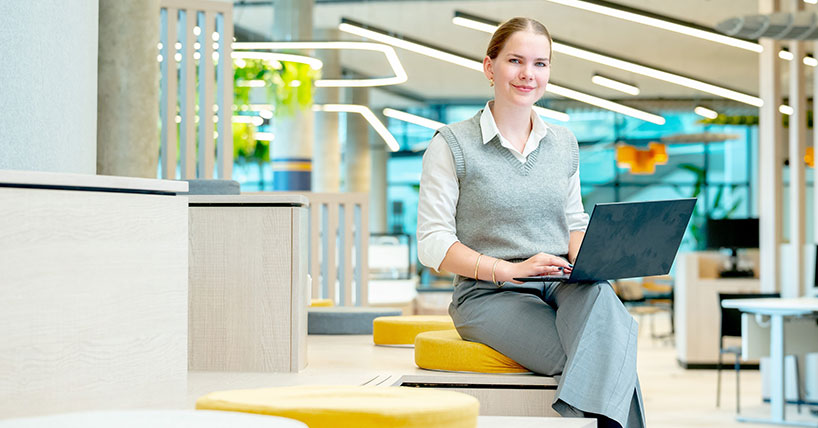Drones
Drones to monitor the health of trees
Published on: 30 September 2021
Scientists will be flying drones to monitor tree health as part of an initiative to cut the UK’s greenhouse gas emissions.
The drones, fitted with hyperspectral cameras, will be flown over woodlands in Suffolk. Sensors in these cameras can be fine-tuned to measure the range of colours in the tree canopy and the project aims to develop systems which will allow individual trees to be identified, and to determine how healthy those trees are.
Scientist, Dr Rachel Gaulton, of Newcastle University's School of Natural and Environmental Sciences, has received funding from the Science and Technology Facilities Council (STFC) for the project along with Fera Science Limited and STFC RAL Space. The aim is to help reduce the UK’s net emissions of greenhouse gases to zero.
Lecturer in Remote Sensing, Dr Gaulton explains: “We aim to develop a system using these very sensitive cameras to work out individual pigments, water absorption and so be able to tell apart tree species and how healthy each tree is.
“This will help us monitor the state of woodland and this is important because if trees are dying, particularly larger, older trees, then there is a risk that we are facing a net loss of carbon. Despite efforts to plant trees we need to know whether we are losing established trees as without realising it we may actually be losing more than we are gaining in some regions of the UK, due to pests, disease and climate change impacts.”

Drive towards Net Zero
The UK government has committed to reducing the UK’s net emissions of greenhouse gases to zero by 2050. This research will be part of the drive towards Net Zero by identifying whether our woodlands are healthy and retaining carbon or whether the tree loss risks releasing carbon.
The team hope to develop this low-cost solution allowing the modelling of woodland carbon storage.
STFC Executive Chair Professor Mark Thomson said: “We all are responsible for finding ways to reduce our carbon emissions to achieve the government’s Net Zero target, especially in the research and innovation sector.
“One of the ways we are doing that in STFC and across the scientific community is to look at how we conduct experiments and whether there might be more efficient ways of doing this.
“We are also taking some of the cutting-edge techniques used for pioneering research and applying those to solve some of the biggest challenges to becoming a carbon neutral nation.”



